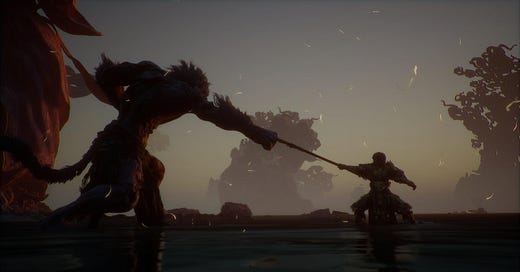Black Myth: Wukong is incredible, but is literally lost in translation
REVIEW: An outstanding game with a story that can be a bit difficult to follow largely due to hit-and-miss localisation.
This is a repost of the review from the end of last week’s edition. Each week I write one main story and finish the newsletter with a game review that I’ve played. If you are new here, and like what you’re reading, well, the button below is for you.
Keep reading with a 7-day free trial
Subscribe to Infinite Lives to keep reading this post and get 7 days of free access to the full post archives.




